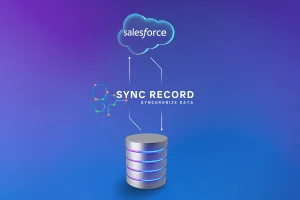Data is not just the new gold - it is at the heart of digital transformation and competitive advantage. IT managers in the energy sector and founders of tech startups face a fundamental challenge: How do you manage exponentially growing data in a way that delivers both operational and strategic returns? Data Management is no longer a compliance issue, but a critical part of business strategy. Failure in Data Management can lead to costly operational disruptions, legal complications and reputational damage. A robust data governance approach helps companies not only protect data, but also effectively leverage it for innovation and growth.
The role of Data Management in data-driven decision-making
Data Management goes beyond simply storing data. It is about the quality, accessibility and security of information. An energy company that uses real-time data for grid balancing and load forecasting cannot afford inconsistent or inaccessible data sets. For a tech startup training AI models, contaminated or unstructured data can mean that algorithms are optimized incorrectly, with dire consequences.
A strategic approach requires establishing a data governance framework in which it is clear what data is critical, who is responsible for what data flows and how data is secured. Self-service analytics within a controlled framework enables employees to gain insights faster while ensuring data quality and compliance.
Data migration: more than a technical transition
One of the most underestimated aspects of Data Management is data migration. Moving to a new system, cloud environment or multi-cloud infrastructure involves risks such as data loss, inconsistencies and downtime. This directly impacts operational efficiency and can cause major financial losses.
Successful data migration requires a detailed roadmap, including:
- Data quality and cleansing: Data should be analyzed and cleansed before migration to minimize redundancy and errors.
- Metadata management: Knowing what your data means and how it is used prevents surprises after migration.
- Automation and AI-driven verification: Smart validation mechanisms detect and correct errors even before they impact business operations.
- Continuous monitoring: Migration is not a one-time event, but a continuous process that must be monitored even after the transition.
For an energy company, a structured migration means that network infrastructures and real-time monitoring remain unimpeded. For a tech startup, it can mean that their applications scale smoothly to a global customer base.
From data to predictive insights
In the future, Data Management will not just be about storing data securely, but more importantly about leveraging it for predictive and strategic insights. AI and machine learning can only deliver value if the underlying data is reliable and well-structured.
For the energy sector, for example, this means making the best use of predictive analytics to prevent grid congestion. For tech startups, it involves data-driven product development, using customer data to improve functionalities and optimize personalization.
Conclusion: data management as a competitive advantage
Data Management is no longer a peripheral requirement, but a strategic pillar that determines how quickly and effectively an organization can innovate. For energy IT managers and tech founders, a solid Data Management strategy means not only a reduction in risk, but also an increase in operational efficiency, compliance and competitiveness.
The question is not whether to take Data Management seriously, but how to set it up so that it becomes an accelerator of growth and innovation.

Ask our specialists
Feel free to contact Arnd Jan Prause, Founder and Consultant at musQueteer, if you would like to learn more about AI in Customer service.


